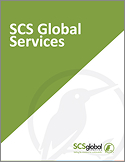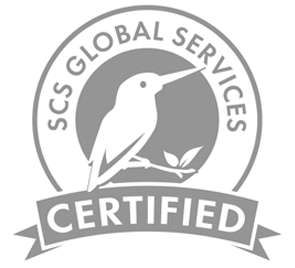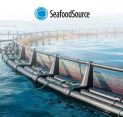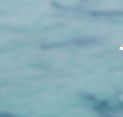Aquaculture Stewardship Council (ASC) Certification
Responsibly Farmed Seafood, Chain of Custody, and Feed

- Home /
- Services /
- Sustainable Fisheries and Seafood /
- Aquaculture Stewardship Council (ASC) Certification

Seafood Certification Team
Get certified to the world’s premier aquaculture standard
The Aquaculture Stewardship Council (ASC) is the gold standard among third-party certification programs for the aquaculture industry. Whether you are a producer, feed provider, processor, wholesaler or distributor, certification assures your buyers, retailers, and consumers that farmed fish and seafood product were raised and handled in conformance with these strict requirements for environmental and social responsibility. We proudly offer certification under the following ASC standards:
- ASC Farm Standard. Demonstrating that fish and seafood operations meet the full range of requirements confirming responsible farm management, environmental stewardship, social responsibility and human rights, animal welfare, and transparency.*
- ASC Chain of Custody (CoC) Standard. Confirming that companies who source certified seafood are segregating these products from non-certified seafood during storage, processing, packaging, and sale/shipping, and have records to trace these products back to their source.
- ASC Feed Standard. Auditing feed mill operations, including sustainable sourcing of ingredients, environmental impacts, and ethical labor practices. See more here.
* Individual species are also now subject to evaluation under ASC species-specific standards
Experience Matters
SCS has been an international leader in fish and seafood certification since the late 1990s, when it helped craft and test the first international responsible fisheries standard. Our staff scientists have participated in the development of several of the ASC standards and belong to the ASC Technical Advisory Group. We have expertise with all major farmed species, and with each stage of the chain of custody through retail and restaurant operations. Our team is also equipped to bundle your certification with related services, such as seafood safety auditing.
- Program Details
- Process (Farm)
- Process (CoC)
- Benefits
- FAQs
- Documents
The ASC standards were created through a transparent, multi-stakeholder process convened by the World Wildlife Fund for fish farming operations around the world, and for supply chain participants bringing certified farmed fish to the market.
Eligibility
- Farm: Any aquaculture producer who farms one or more of the species covered by the ASC standards can take part in the ASC certification program. See current list of species in the FAQ tab. ASC certification can be sought for single operations, groups of operations managed under a common management system (ASC Group Standard), and multi-site operations (ASC Multisite Standard).
- Chain of Custody: Any organization that assumes legal ownership of ASC certified farmed fish or seafood that plans to sell such products as certified to downstream customers. This includes processors, packers, repackers, shippers, and more. Certification claims may only be made by organizations that have undergone this process.
- Feed suppliers: Any feedmill supplying feed materials to certified ASC farms. Note: Effective October 31, 2025, all ASC certified farms must use conforming feed from certified ASC feedmills.
Optional Pre-Assessment
Pre-assessment audits set you up for success, enabling your organization to identify the steps and processes needed to ensure that your operation complies fully with the requirements of the ASC standard. A pre-assessment includes a gap analysis of your operations against the standard, resulting in a report identifying areas of improvement.
Full Assessment
- SCS is fully accredited to conduct your ASC certification audit.
- Farm operations are evaluated against the comprehensive requirements of the ASC Fish Standard, as well as the applicable species-specific standard.
- Downstream supply chain participants are evaluated against the ASC Chain of Custody Standard. To receive certification, a farm must meet or exceed the minimum standards for land and water usage, pollution and waste management, genetics and biodiversity, feed management, health management, veterinary medicines and chemicals, and social accountability.
Feed mills are certified against the ASC Feed Standard. Read more here.
Complementary Services
SCS offers a broad range of services that can complement your ASC certification. These include, for instance:
- HACCP Food Safety
- Marine Stewardship Council (MSC) Fisheries and Chain of Custody
- Certified Seafood International (CSI) – formerly RFM
- Fair Trade Certified™
- Best Aquacultural Practices (BAP) – starting Q4 2025
-
Submit application
Once you complete and submit your application form, we will prepare a proposal outlining the project scope and cost of the audit. To initiate services, sign and return the proposal. (Contact us for application form in languages other than English.)
-
Pre-Assessment (Optional)
SCS evaluates the qualifications of your aquaculture operation and determines what risks, if any, may limit your ability to successfully complete a full farm assessment.
-
On-Site Farm Audit
SCS conducts a full farm assessment, following procedures described in the ASC's Farm Assessment Methodology. An independent assessment team reviews documentation, interviews stakeholders, and evaluates aquaculture operations against applicable criteria.
-
Audit Report and Public Comment
Our assessment team prepares a draft report, which is reviewed by the client and two independent peer reviewers. Proprietary information may be removed. The report is then posted for public comment.
-
Certification Decision
After considering comments, the final report is released, including the certification decision. Barring any objections, the certification report is published and your aquaculture operation receives an SCS certificate.
-
Maintain Certification
Certificates are valid for three years. Certification is subject to random surveillance audits in which critical control points such as harvest are observed.
-
Submit application
Complete and submit your application form. SCS prepares a proposal that includes the scope and cost of the audit. Sign and return the proposal to begin the project. (Contact us for application form in languages other than English.)
-
Audit Preparation
Familiarize yourself with the certification requirements, then review your operations and develop additional procedures, training, and record keeping as needed to ensure you can demonstrate conformance.
-
On-site Audit and Report
Our auditor or audit team visits your operation to assess conformance, then prepares an audit report.
-
Corrective Actions
Based on audit report findings, we issue corrective action requests as applicable. You must respond to any non-conformities raised if you wish to be certified.
-
Certification Decision
Upon reviewing the audit report as well as evidence that corrective actions have been taken, a final certification decision is made.
-
Surveillance Audits
CoC certification is granted for three years. Interim “surveillance audits”are conducted at 12 or 18 month intervals, determined based on the specific risks related to your operations.
ASC certification can lead to a wide range of potential benefits, including:
- Increased sales to existing clients
- Access to new markets and clients
- Reinforced company/brand reputation
- Price premiums / higher margins
- Improved worker conditions
- Increased stakeholder satisfaction
- Access to development funding
- Manage risks
What is the Aquaculture Stewardship Council?
The ASC is an impact-driven NGO whose mission is to make aquaculture more sustainable. Its standards were created to recognize and reward responsible aquaculture, developed through a collaborative and transparent process with scientists, conservation groups, NGOs, aquaculture producers, seafood processors, retail and food service companies, and consumers. The ASC certification program includes standards for farmed fish and seafood, for the seafood chain of custody, and for feed stocks. These standards conform to FAO Guidelines for Ecolabelling and the ISEAL Alliance Code of Conduct.
Why should my company get certified under the ASC standard?
Becoming ASC certified will demonstrate that your operation has been third-party audited to a stringent level of performance, via a label established collaboratively by public interest groups, industry, and academia. This contrasts starkly with programs that are industry-founded, do not involve third-party audited, do not have transparent governance structures, or do not include stakeholder engagement.
- For farm certification, apply here.
- For chain of custody certification, apply here.
What are the core principles underlying ASC certification?
- Legal Compliance and Effective Business Management
- Compliance with relevant national and local laws and regulations, and demonstration of sound business practices.
- Environmental Stewardship
- Minimizing impact on the environment, including habitat conservation, water quality, feed management, waste management
- Protection of Human Rights
- Includes fair labor practices, worker safety, and community engagement
- Responsible Animal Health and Welfare
- Includes disease management, fish health and welfare, minimized fish escapes into the wild
- Transparency
- Making standards, farm audits, and certification publicly available
- Traceability
- Ability to track any seafood item back through the supply chain to its source of origin
- Continuous improvement
- Updates based on scientific research, stakeholder feedback, and latest best practices.
What species are currently covered under ASC species-specific standards?
Examples include:
- ASC Abalone Standard
- ASC Bivalve Standard
- ASC Freshwater Trout Standard
- ASC Salmon Standard
- ASC Seriola and Cobia Standard
- ASC Shrimp Standard
- ASC Tilapia Standard
- ASC Feed Standard
- ASC Flatfish Standard
- ASC Pangasius Standard
- ASC Seabass, Seabream, Meagre Standard
- ASC Tropical Marine Finfish Standard
What is involved in ASC Chain of Custody (CoC) Certification?
Supply chain participants must have the necessary procedures and record keeping are in place to demonstrate that you:
- Receive certified seafood product directly from a certified fishery, farm, or CoC certified supplier.
- Keep certified seafood product separate from non-certified seafood while in your ownership (through storage, processing, packaging and sale/shipping).
- Have identified and addressed all risks of potential commingling of certified and non-certified product.
- Have records that provide traceability back to the source.
How much does certification cost?
Cost considerations for full assessment include the extent of production, the number and type of improvements needed, and the steps needed to audit these changes (e.g., is an onsite audit needed, what auditing skill set is required). Companies undergoing bundled certification services enjoy price discounts due to efficiencies (e.g., ASC Chain of Custody and Seafood HACCP).
How long does it take to get certified?
SCS is fully committed to customer service and responsiveness. The length of the assessment depends on a variety of factors, including: size and complexity of the operation, the types of procedures and records in place, etc. For farm assessments, the on-site farm visit itself typically take 1-4 days, undertaken by a two to three person assessment team, while the entire assessment usually takes 8 to 12 weeks. For chain of custody assessments, we typically complete the assessment and provide a certification decision within 6-8 weeks.
How long is certification valid?
ASC Farm and Chain of Custody certifications are granted for a three-year period, with annual surveillance audits to confirm continued compliance with the relevant standard.
Where can I find a listing of all SCS certified seafood farms?
Check out the ASC website Find a Farm feature.
Apply Now
Ready to start the process? Complete an Application.
Seafood Certification Team
SCS Certified Clients
Learn more about the clients we certify and where to find products with this certification.
Service Brochure







